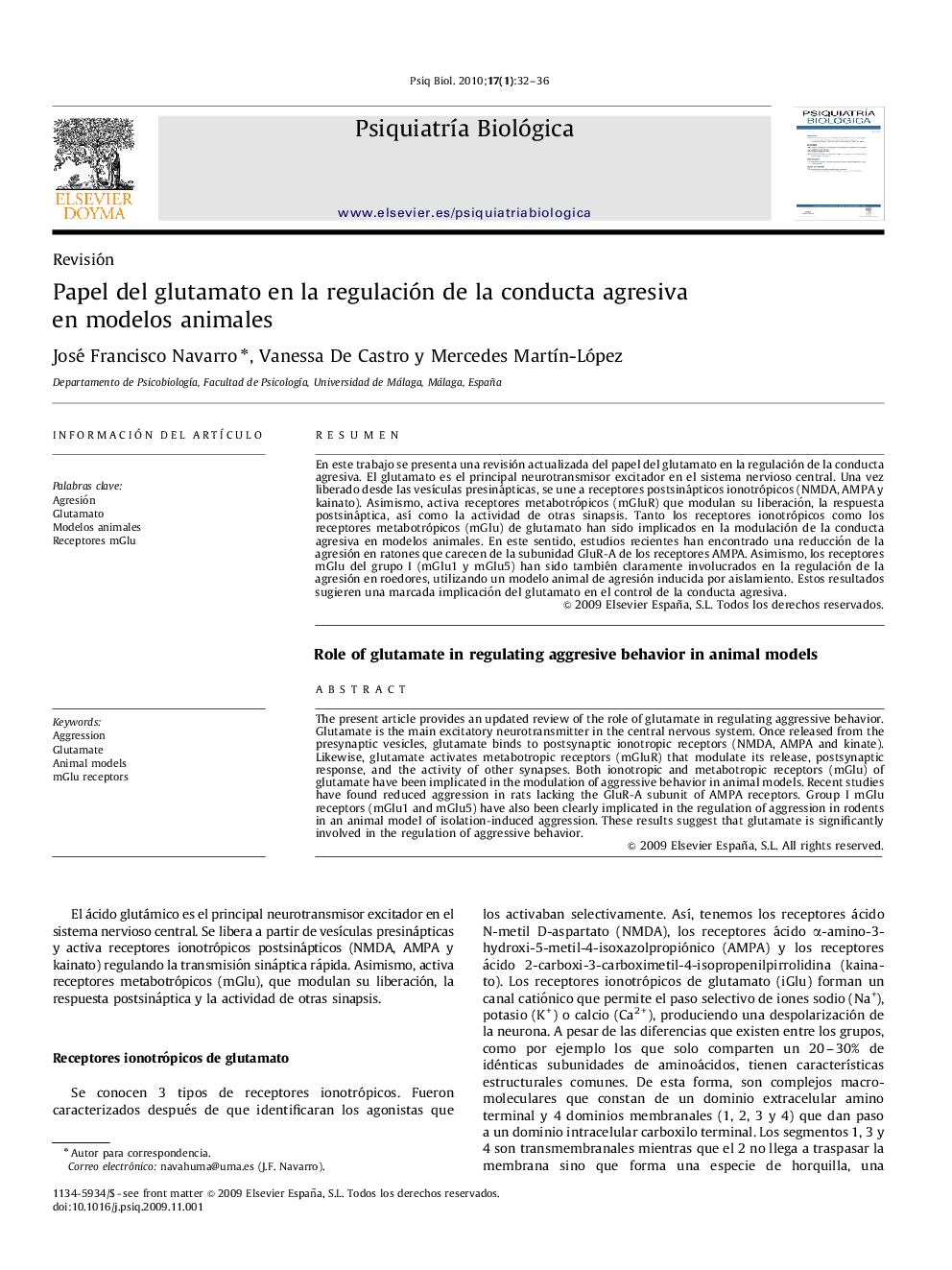| Article ID | Journal | Published Year | Pages | File Type |
|---|---|---|---|---|
| 4188876 | Psiquiatría Biológica | 2010 | 5 Pages |
Abstract
The present article provides an updated review of the role of glutamate in regulating aggressive behavior. Glutamate is the main excitatory neurotransmitter in the central nervous system. Once released from the presynaptic vesicles, glutamate binds to postsynaptic ionotropic receptors (NMDA, AMPA and kinate). Likewise, glutamate activates metabotropic receptors (mGluR) that modulate its release, postsynaptic response, and the activity of other synapses. Both ionotropic and metabotropic receptors (mGlu) of glutamate have been implicated in the modulation of aggressive behavior in animal models. Recent studies have found reduced aggression in rats lacking the GluR-A subunit of AMPA receptors. Group I mGlu receptors (mGlu1 and mGlu5) have also been clearly implicated in the regulation of aggression in rodents in an animal model of isolation-induced aggression. These results suggest that glutamate is significantly involved in the regulation of aggressive behavior.
Related Topics
Health Sciences
Medicine and Dentistry
Psychiatry and Mental Health
Authors
José Francisco Navarro, Vanessa De Castro, Mercedes MartÃn-López,
